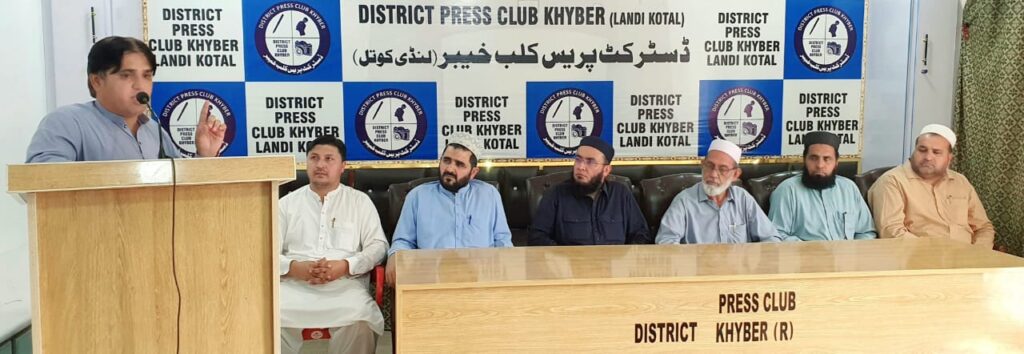
By Sudhir Ahmad Afridi
LANDI KOTAL: A seminar in Khyber has laid bare the dire state of girls’ education in the tribal districts, with speakers demanding the government declare an “education emergency” and urgently recruit local women teachers to revive shuttered schools.
Held at the district press club in Landi Kotal, the session drew representatives from public and private schools, former education officers, political figures and civil society activists. The mood, by all accounts, was one of alarm at the scale of neglect.
Nadia Irshad, principal of the government girls’ degree college, said her institution was running associate and intermediate programmes in science and arts with qualified staff available. “Admissions are open, facilities exist. Parents must not interrupt their daughters’ schooling,” she urged.
But statistics revealed during the discussion told a stark story. Maroof Khan Afridi, head of the Hundred Organisation, disclosed that only 3% of candidates sitting the recent matriculation exams from Landi Kotal were girls. He blamed a lack of political will: “Primary schools in tribal areas face crippling shortages of teachers, books and facilities. The government has not made women’s education a priority.”
Murad Hussain Afridi, president of a local political alliance, pointed out that the area has only “two or three” high schools for girls and a single higher secondary school. “Eighty percent of our female students are without books. Dozens of primary schools remain shut due to the absence of staff,” he said.
Speakers pressed for the immediate hiring of local young women, exempt from the province’s centralised testing agency, to staff classrooms and reopen dormant schools. “Only by turning local girls into teachers can we raise literacy levels,” said former education officer Bahadur Khan Shinwari, echoing the call of the private schools association and other participants.
Molana Muhammad Shoaib Qadri, representing the constituency’s MPA, assured the gathering that provincial minister Adnan Qadri was working on measures to address the crisis and pledged that religious leaders would help raise awareness from the pulpit.
Several speakers lambasted the education department for “chronic neglect” and for overlooking local candidates in recruitment drives. The consensus was that without bold interventions, a whole generation of girls risked being denied their future.
The event ended with appreciation for the press club’s initiative in spotlighting what participants described as the “most urgent issue facing the tribal districts” and calls for such public dialogues to continue.


